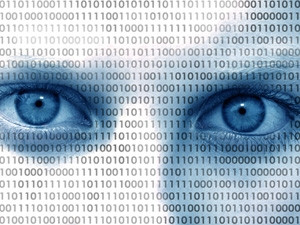
The Internet community is finally waking up to the fact that companies collect data on their shopping, reading and browsing habits - and that this information is not always securely stored.
The latest outcry, as reported by The Register, is over a flaw with the way Adobe handles data it collects from those using the Digital Editions 4 e-book reader. The Digital Reader blog notes Adobe is tracking users in the app and uploading data - including which pages have been read - to its servers, in plain text, allowing the information to easily be intercepted.
Claims were also made that Adobe not only collected data about what the app was being used to read, but also other e-books kept on the host computer. Adobe has defended its actions, saying it tracks the information to make sure copyright is not infringed.
Widespread
Adobe is not alone in collecting information, as several recent events have revealed. In August, there was an outcry over the amount of permissions Facebook's Messenger needs to run. Android devices, for example, give the app the right to access users' location, contacts, edit, read, receive and send SMS messages. It also can "directly call phone numbers" and read call logs as well as take pictures and videos, and record audio.
In another similar incident, earlier this year, there was another backlash when it was revealed Google uses an automated system to scan e-mail for spam and malware, but also so it can target advertising.
This follows issues reported last year that LG's smart televisions send viewing information back to LG. The TV-maker's reported response to the viewer who uncovered this issue was that this practice was covered by its terms and conditions.
In 2012, it was revealed Samsung's Smart TV could be used by hackers to watch everything that happens in living rooms by gaining access to the device's built-in camera and microphones.
Accept it
Swift Consulting CEO and tech blogger Liron Segev says the use of data, ostensibly to improve the quality of service providers offer, is nothing new. However, with the advent of big data, and better analytics tools, collecting information has moved to external sources as well, he adds. "There is no privacy, it was gone a long time ago, from the second you stopped buying magazines in store with cash."
Segev says the dilemma comes in when information is not properly secured, such as when it is transmitted in plain text, as with the Adobe incident. "That's offsides." He adds security has become a boardroom issue because awareness is higher, citing Target CEO Gregg Steinhafel's resignation as an example after its recent hack.
The more history Internet users provide through their digital footprint - a virtual ID - the more accurate things such as targeted advertising and recommended purchases will become, says Segev.
Although data collection is "nothing new," consumers have finally woken up to the fact that their digital footprint is being sent back to service providers, and the world is straddling a fine line between privacy and the use of data to offer a better service, says Segev. "It's on everybody's radars now."
Segev notes the collection - and use of - anonymised data will speed up as companies get more to grips with how valuable the information is.
Share